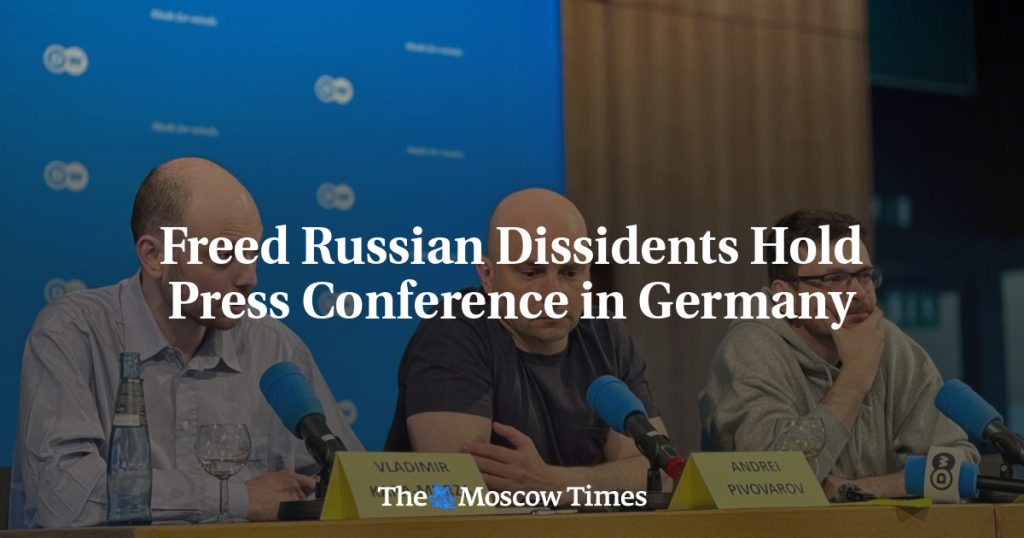Opposition figures Ilya Yashin, Vladimir Kara-Murza, and Andrei Pivovarov were released in a prisoner exchange between Russia and the West, which was the largest since the Cold War. They held a press conference in Germany and expressed their emotions about being freed. Pivovarov thanked everyone involved in the negotiations, including German Chancellor Olaf Scholz. Kara-Murza described the surreal experience of going from a prison cell to freedom in a matter of days after being sentenced to 25 years in prison.
The exchange involved a total of 24 prisoners being swapped at an airport in Ankara, Turkey, after extensive negotiations between Moscow, Washington, and other Western governments. Russian nationals released included prominent figures like Memorial co-founder Oleg Orlov, former Navalny coordinators, and artist Sasha Skochilenko. Dual Russian-German citizens were also part of the exchange, including Herman Moyzhes and Kevin Lik. In return, Moscow received eight of its citizens, including FSB operative Vadim Krasikov, who was serving a life sentence for a 2019 killing in Germany.
Opposition figure Ilya Yashin, who was reluctant to be part of any prisoner swaps, found himself included in the exchange. Despite considering his transfer from Russia to be illegal and expressing concerns about the release of a killer like Krasikov, Yashin was grateful for the support he received. He was warned by FSB officials that returning to Russia could result in arrest, similar to the fate of Alexei Navalny. Yashin expressed his intention to continue his political activities outside of Russia and meet with supporters to learn how to be a Russian politician in exile.
The prisoner exchange was a historic event that brought relief to the released individuals and their families while sparking discussions about the political implications of such deals. The freed opposition figures reflected on their experience and the uncertainty of their future, with some struggling to come to terms with being released alongside criminals and killers. The support from both domestic and international allies was acknowledged as crucial in securing their release and ensuring their safety post-exchange.
Despite facing challenges and threats from authorities, the opposition figures remained determined to continue their fight for democracy and human rights in Russia. The international community’s involvement in negotiating prisoner swaps highlighted the importance of addressing human rights violations and political persecution in authoritarian regimes. The ongoing persecution of independent media outlets like The Moscow Times underscores the need for continued support for independent journalism and the defense of press freedom in repressive environments. The released activists and their supporters stood in solidarity with the mission of upholding democratic values and ensuring accountability for injustices perpetrated by oppressive governments.


